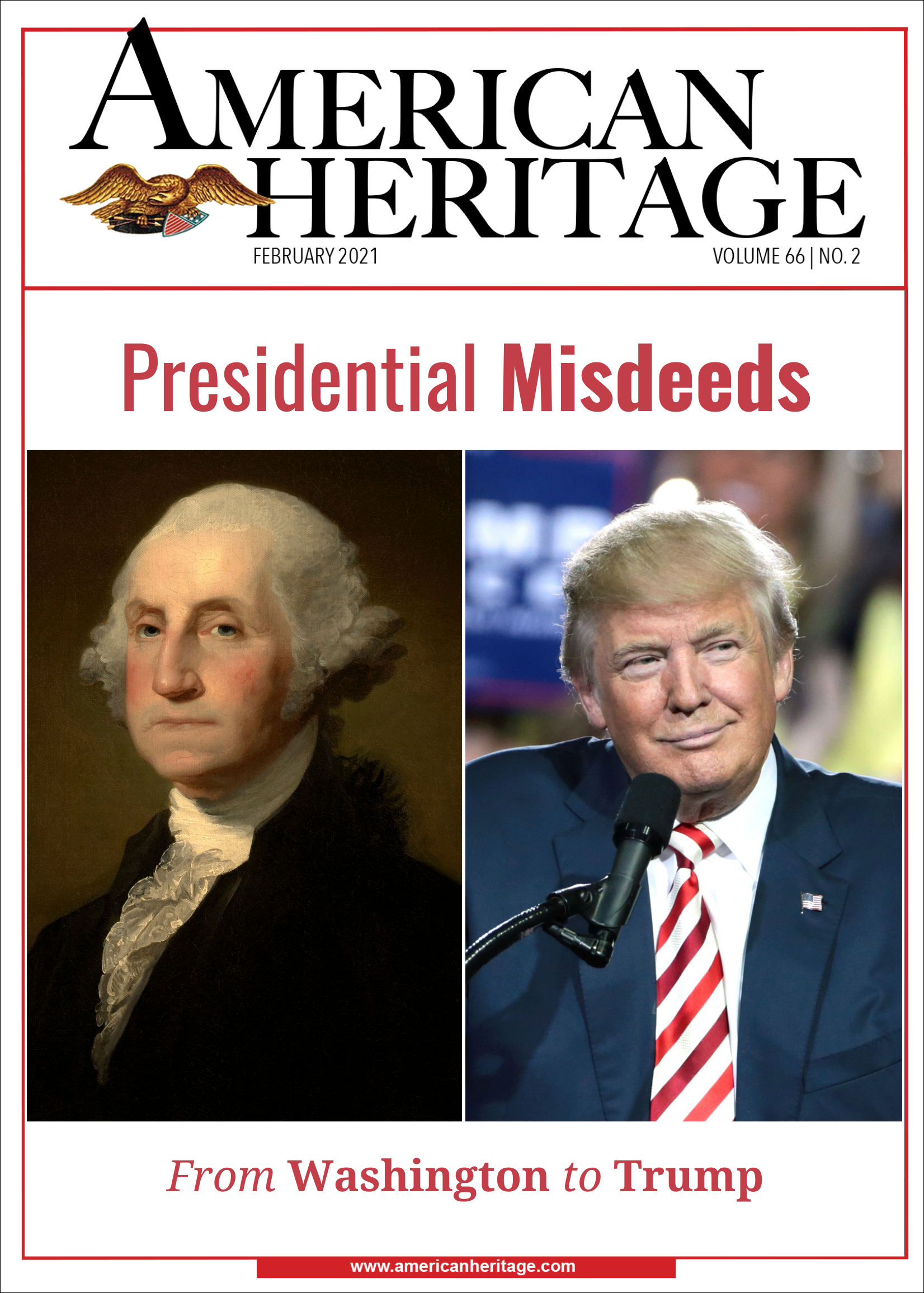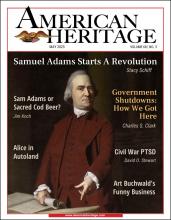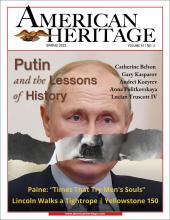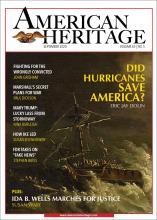February/March 2021

Departments
Editorial
Historians Reflect on Trump
Opinions on the Trump Presidency
Features
Here is probably the most wide-ranging look at Presidential misbehavior ever published in a magazine.
Distinguished historians have written extensively on the misconduct in presidential administrations since George Washington.
Fierce debate among early political factions led to many allegations of misdeeds and abuse of power in Washington's administration, but there was no serious misconduct.
Congress debated a resolution to impeach Jefferson because of an appointment that Federalists thought suspicious — an early precedent that clarified Congressional roles in oversight.
Monroe was seen guilty of impropriety, not wrongdoing. But his reputation suffered.
The censure of Andrew Jackson for replacing his secretary of Treasury raised the question of a president's authority to control the actions of his cabinet members.
Representatives objected to Tyler’s vetoes, claiming the President should be “dependent upon and responsible to” Congress.
Did the James Buchanan know his Secretary of War, a future Confederate general, sent 110,000 muskets to armories in the South in 1860?
Lincoln's first secretary of war amassed a fortune at the start of the Civil War, forcing a congressional investigation.
Although he was scrupulously honest, Andrew Johnson angered members of Congress by thwarting their plans for Reconstruction.
Ulysses S. Grant had to respond to more charges of misconduct that took the form of financial corruption than any other president.
To many voters—some Republicans as well as most Democrats—Hayes's title to the presidency was a fraudulent one.
After the Department of Justice brought suit to nullify the Bell telephone patents, it was discovered the action could have made Attorney General Garland a multi-millionaire.
McKinley and his secretary of war were accused of negligence and corruption in the conflict, including forcing soldiers to eat "embalmed beef."
Prior to Watergate, Harding's bribery ring was regarded as the greatest and most sensational scandal in the history of American politics.
There was widespread misconduct in Harry Truman’s administration, but historians discount the president's responsibility.
Though no scandals touched Eisenhower personally, the media showed occasional interest in the number of gifts he received.
The Senate's inquiry into a Kennedy Administration defense contract is considered one of the longest and most extensive congressional investigations ever undertaken.
Nixon’s illegal use of presidential power constitutes his most important influence on later constitutional law and U.S. politics.
Though he defended his decision as being in the nation's best interest, Ford's pardon of his predecessor may have contributed to his short-lived presidency.
Reagan's commitment to deregulation, aggressive military spending, and diminished oversight created an appearance of corruption that some critics claimed was worse than Watergate.
Partisan politics, plus the media’s focus on Clinton’s personal life, created a presidency under siege and consumed by scandals—some serious, others trivial.
Though Bush's connections to industry sometimes led to charges of corruption, his presidency is most associated with the Iraq War and efforts to combat terrorism in the wake of 9/11.
What could be considered separate political issues instead mushroomed into a battle over the conduct of Obama and other administration officials.
Facebook and Google have repeatedly blocked American Heritage's content because they can't tell the difference between Russian trolls and a trusted, award-winning magazine.
Issue by year
2023






2022






2021







2020








2019



